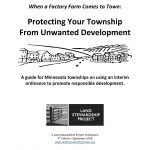As part of its education-to-action strategy, the Land Stewardship Project periodically produces deeply researched publications on everything from soil health and local democracy to the need for policy reform.
LSP Publications
Big Bird. Big Problem.: How the Poultry Industry is Turning the Avian Flu Pandemic into a Source of Profit at Taxpayer’s Expense While Decimating Our Farm & Food System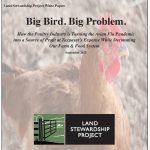
In September 2025, the Land Stewardship Project produced a white paper on the strain of the H5N1 avian influenza virus that emerged in 2022 in the United States. The white paper asks key questions about the role the mega-confinement, industrialized poultry system of agriculture has played in creating and propagating this pandemic. Are these operations the “victims” of a virus that originated in an environment outside of Big Ag’s control? Or is the Big Bird CAFO system itself the source of the problem? And is society’s strategy of paying big poultry companies to wipe out infected flocks and to continue business as usual yet one more way of subsidizing a system of food production that is inherently unsustainable? The paper concludes with a short list of proposals that could start us on the road toward a more resilient poultry production system.
LSP Bridge to Soil Health Program’s Peer-to-Peer Learning Groups:
The Strategy & Construction of Regional Farmer Soil Hubs 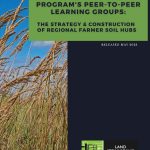
Through this publication, LSP is sharing our experience constructing and implementing the Regional Soil Hubs through our Bridge to Soil Health initiative. We hope that other agricultural groups, including farmer-led groups, might want to borrow or adapt some of the approaches we’ve used.
Soil Health, Water & Climate Change: A Pocket Guide to What You Need to Know
This 50-page pocket guide provides policymakers, educators, journalists, and the general public an 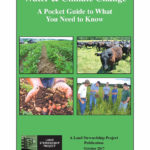 introduction to the latest innovations in science and farming related to building soil health, and how implementing such practices on a wide scale basis can make agriculture a powerful force for creating a landscape that is good for our water and our climate. Download the app here; download the pdf here.
introduction to the latest innovations in science and farming related to building soil health, and how implementing such practices on a wide scale basis can make agriculture a powerful force for creating a landscape that is good for our water and our climate. Download the app here; download the pdf here.
Our Minnesota Future: A Vision for Rural Minnesota 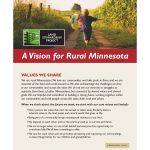
A Vision for Rural Minnesota was developed from input given by hundreds of Land Stewardship Project members during the fall of 2017. This publication is designed as a tool to use in conversations with neighbors, candidates for public office, and others about our values, challenges, and vision for the future of rural communities and our state.
Building the Bridge to Soil Health 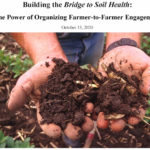
In October 2020, a special LSP report was published: Building the Bridge to Soil Health: The Power of Organizing Farmer-to-Farmer Engagement. It describes the organization’s experience with launching the Bridge to Soil Health initiative in Minnesota. The report is available here.
Farming to Capture Carbon & Address Climate
Change Through Building Soil Health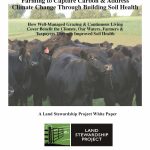
This LSP white paper, written by George Boody in 2020, describes how well-managed grazing and continuous living cover benefit the climate, our waters, farmers, and taxpayers through improved soil health.
Special Report: Soil Health, Profits & Resiliency 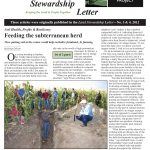
In 2012 the Land Stewardship Letter published a series of articles on the groundbreaking work being done by a team of farmers, conservationists and scientists in North Dakota’s Burleigh County to combine soil health, profitability, and greater overall community sustainability. This special report combines those articles and information on additional resources.
Special Report: King of the Cover Crops 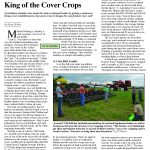
In 2015 and 2016, the Land Stewardship Letter published a series of articles on the Indiana soil health hubs that brought together farmers, resource professionals, implement dealers, and input suppliers. These networks helped make the state a leader in cover cropping and greatly influenced LSP’s development of similar soil health hubs in Minnesota.
The Money Pit: How Minnesota Property Taxpayers are Subsidizing Factory Farms 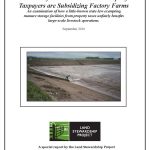
This is an LSP report on how a little-known law exempting manure storage facilities from property taxes unfairly benefits large-scale livestock operations.
The Land Stewardship Letter 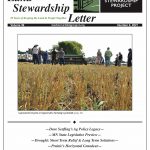
This is the nationally-known publication of the Land Stewardship Project. Members of the Land Stewardship Project receive a hard copy of this newsletter as a benefit. Annual membership dues are $35. Address all membership inquiries to Clara Sanders via e-mail or at 612-400-6340. Click here for detailed information on becoming a member of LSP today.
Connecting Economic & Racial Justice to Expand a Rural Social Justice Network 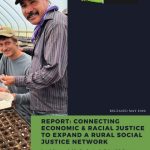
LSP has developed “Connecting Economic & Racial Justice to Expand a Rural Social Justice Network” as a reference document for any group, agency, or organization looking to establish and grow a social justice network in their locality. This report is also intended to guide other social justice networks through discussions and activities that draw out their values, experiences, and ideas for influencing social change in their communities.
Produced by LSP’s Policy and Organizing Program, this booklet provides guidance to townships on using the Minnesota Interim Ordinance and other tools in the state’s Municipal Planning law. It also contains an extensive list of resources. This is the 3rd edition of this publication; it was originally written in 1997 and updated again in 2006. The 2018 version includes significant updates, including information on frac sand mining operations. 65 pages.
People’s EIS Scoping Report: Citizen Comments on the Necessary Scope and Depth of the Environmental Im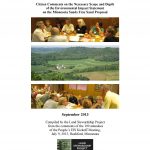 pact Statement on the Minnesota Sands Frac Sand Proposal
pact Statement on the Minnesota Sands Frac Sand Proposal
On Tuesday, July 9, 2013, 100 people attended a Land Stewardship Project meeting in Rushford, Minn., to state their serious concerns about the destructive impacts a frac sand mining proposal would have on their lives and communities and to raise the specific issues that must be included within the scope of the Environmental Impact Statement (EIS) being done on the proposal. Their comments are compiled in this report.
Creating a Bright Future for Livestock Farms in Minnesota: A Report by the Citizen Task Force 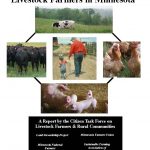 on Livestock Farms & Rural Communities
on Livestock Farms & Rural Communities
In 2004, the Citizen Task Force on Livestock Farmers and Rural Communities studied the challenges and opportunities facing livestock farmers and rural communities, and assembled a list of priority recommendations to policy makers and community leaders on ways to increase the number and profitability of Minnesota livestock farmers in ways that benefit rural communities, recognizing that livestock farmers and vibrant rural communities are interrelated.
The Syngenta Corporation & Atrazine: The Cost to the Land, People & Democracy 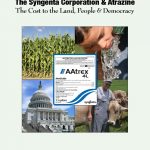
In January 2010 the Land Stewardship Project and Pesticide Action Network North America collaborated on a special report on atrazine, one of the most commonly detected pesticides in U.S. ground and surface water. This report offers a review of the many environmental and health concerns surrounding atrazine and describes how its inventor and primary manufacturer, Syngenta, has resisted attempts to conduct extensive research on the chemical and regulate its use. The report also highlights what farmers can do to end their reliance on atrazine.
Crop Insurance Reports
Farmer-members of the Land Stewardship Project have long called for reforms to the federally subsidized crop insurance program. Originally developed as a basic safety net that would prevent farmers from being wiped out by a weather disaster, the program has evolved into a system for subsidizing the growth and consolidation or mega-cropping operations. This has been bad news for small and medium-sized farmers as well as soil health, water quality, and wildlife habitat. Over the years, LSP has worked with its members and various experts to develop numerous reports on what’s wrong with the crop insurance program and what reforms are needed to bring it back to its roots as a fair safety net.
Crop Insurance: How a Safety Net Became a Farm Policy Disaster 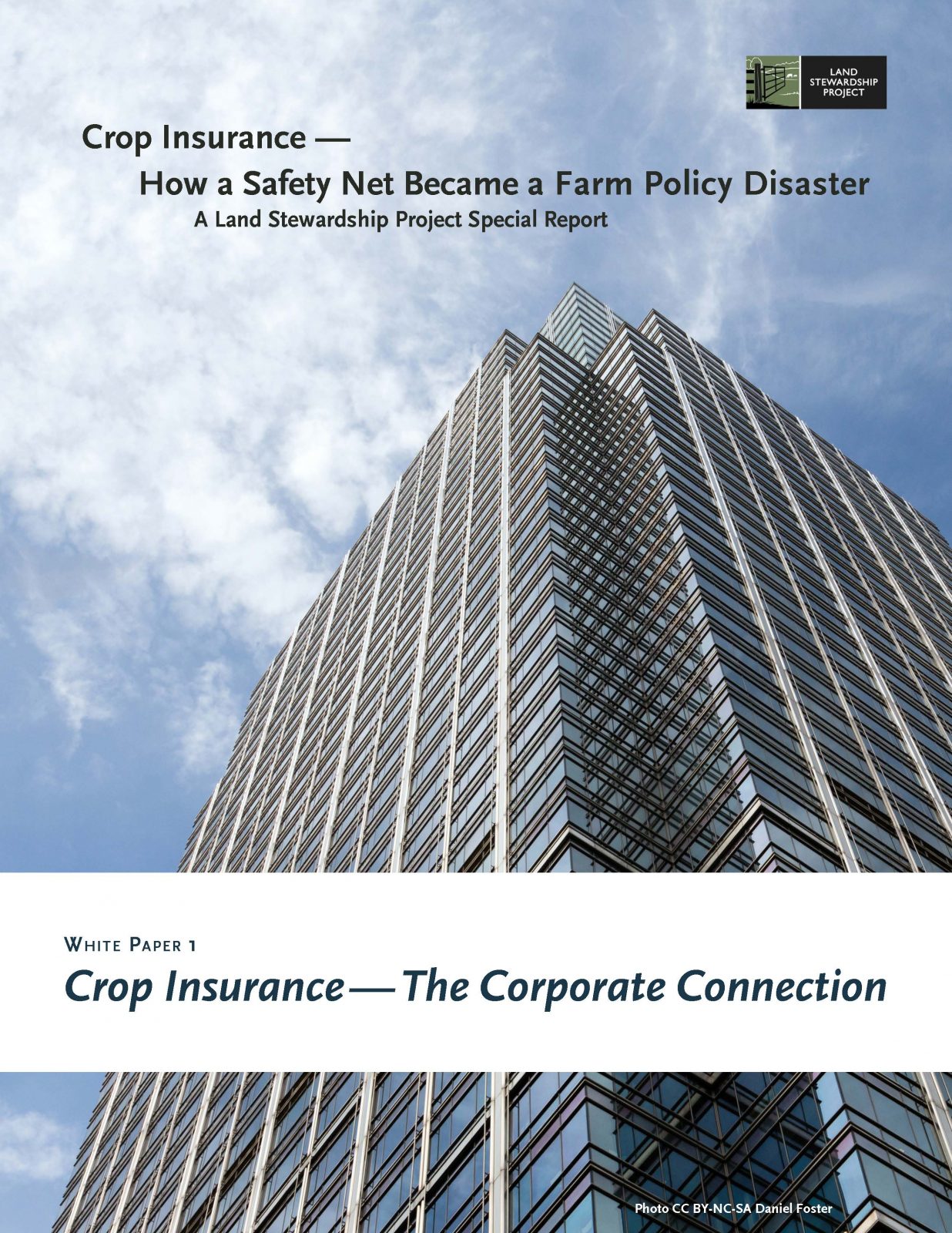
– White Paper #1: Crop Insurance — The Corporate Connection
Crop Insurance: How a Safety Net Became a Farm Policy Disaster
– White Paper #2: Crop Insurance Ensures the Big Get Bigger
Crop Insurance: How a Safety Net Became a Farm Policy Disaster
– White Paper #3: How Crop Insurance Hurts the Next Generation of Farmers
Crop Insurance: How a Safety Net Became a Farm Policy Disaster
Crop Insurance: How a Safety Net Became a Farm Policy Disaster
– Why Investigate Crop Insurance?
Crop Insurance: How a Safety Net Became a Farm Policy Disaster
– Fact Sheet: How Federally Subsidized Crop Insurance Works
